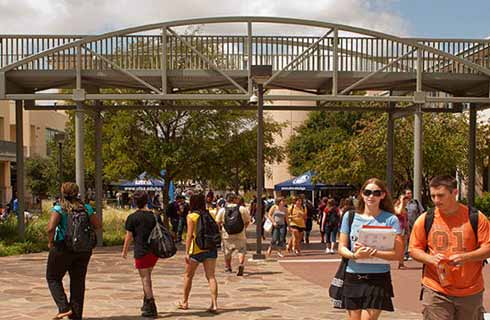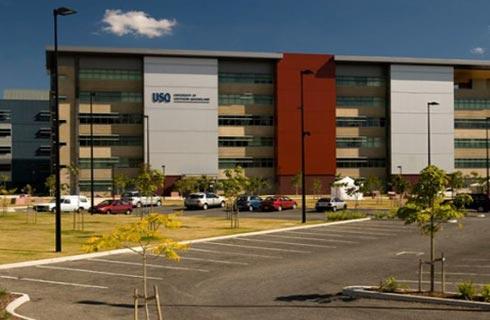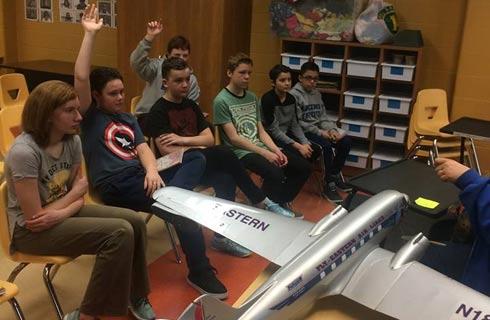MChem(荣誉)化学
MChem (Hons) Chemistry

学历文凭
Undergraduate Masters

专业院系
Chemistry

开学时间

课程时长

课程学费

国际学生入学条件
IDP—雅思考试联合主办方

雅思考试总分
6.5
- 雅思总分:6.5
- 托福网考总分:80
- 托福笔试总分:
- 其他语言考试:Pearson Academic PTE - 62 (with no less than 59 in each Communicative Skill) Cambridge C2 Proficiency or C1 Advanced - 176 with a minimum of 169 per component
CRICOS代码: F105
申请截止日期: 请与IDP联系 以获取详细信息。
课程简介
A integrated Master’s degree, ideal for those planning to move into research either through further studies or within industry.,The chemistry department at Durham is one of the leading departments in the UK and within the Top 100 across the world.When you choose to study for a MChem degree you will join a dynamic and focused learning community that is home to multiple research institutes, a range of first-class facilities and experts with close links to industry. Current developments in both research and industry are used to bring theoretical learning to life. Chemistry degrees at Durham offer a high level of flexibility. The MChem contains the same core curriculum in Years 1 and 2 as our other chemistry degrees and you can switch to one of the other degrees up to the end of the second year. You will learn how chemistry is the central science with learning interfaces with biosciences, earth sciences, engineering, physics and astronomy. You will be exposed to cutting-edge analytical techniques and learn how they can be used to assist research and tackle global issues. Graduates are ready to either move straight into employment in a wide range of industries or advance into further studies and scientific research.You will build strong foundations in inorganic, organic and physical chemistry and learn practical skills in our modern teaching laboratories. In your third year, you will continue to learn the core aspects of modern chemistry, and start to focus on the concepts and skills required in research. Your final year is built around a research project embedded within a research group.Course structureYear 1 modulesCore modules:Core Chemistry 1 provides the foundation for your future studies and covers organic, inorganic and physical chemistry.Practical Chemistry 1A and Practical Chemistry 1B are two modules of laboratory work. These will allow you to learn and practise the skills required to accurately and safely use chemical reactions to create target substances and concludes with project work.Mathematical and Experimental Tools Required in Chemistry (METRiC) builds on your pre-university mathematical skills and ensures that you understand the vocabulary of physics and biology that interfaces with chemistry.Introduction to Materials Chemistry introduces the fundamentals of solid state and materials chemistry.Optional modules:Finally, you will choose some optional modules allowing you to tailor your learning in subjects such as mathematics, biology, languages or the chemistry module Molecules in Action.Year 2 modulesCore modules:Core Chemistry 2 builds your knowledge of inorganic, physical and organic chemistry into more specialised concepts.Chemistry of the Elements focuses the principles of bonding as well as the unique chemistry of the transition metals.Structure and Reactivity of Organic Chemistry explores how the structure of molecules affects reactions.Properties of Molecules advances your understanding of physical chemistry in the areas of magnetic resonance, surface chemistry and electrochemistry.Practical Chemistry becomes more intensive and advanced in Year 2.Optional modules:In recent years, optional modules have included: Biological Chemistry or Computational Chemistry Once again, you can personalise your studies with one optional moduleYear 3 modulesCore modules:Core Chemistry 3 takes your knowledge up to degree standard.Chemistry Literature Perspective You will also produce a research-led Chemistry Literature Perspective which will demonstrate your attained skills of literature review, data collection and critical analysis as well as literacy and presentation skills.Optional modules:In recent years, optional modules have included: Inorganic Concepts and ApplicationsAdvanced Organic ChemistryMolecules and their InteractionsMaterials ChemistryAdvanced Computational ChemistryComputational ChemistryAdvanced Biological Chemistry.
相关申请
 预科
预科 奖学金
奖学金 实习机会
实习机会 在校学习
在校学习 跨境学习
跨境学习 校园授课-线上开始
校园授课-线上开始 在线/远程学习
在线/远程学习
开学时间&学费
学费信息仅供参考,请与IDP联系以获取详细信息
| 开学时间 | 时长 | 学费 | 地点 |
|---|
学校排名

世界排名114
数据源:
泰晤士高等教育世界大学排名
关于杜伦大学

杜伦大学创建于1832年,是英国历史最悠久的大学之一。杜伦大学建于中世纪世界遗产地旁,有着悠久的历史和现代价值观,是一座备受推崇并拥有前瞻性思维的学府。如今,来自世界各地的18000多名学生在达勒姆就读。杜伦大学有28个系,开设有200多门本科和研究生课程。该校很多教师都处于各自领域的最前沿。教职人员利用出色的研究和学科知识为所有学生提供优质的教学。目前,杜伦大学有17个学科在全球大学中名列前100位,其中九个学科名列前50位。除了在学术上的卓越成就,该校还努力为学生提供支持,帮助他们在毕业后获得有意义的工作。其毕业生就业能力目前在世界上排名第88位。该校的就业与创业中心致力于培养学生的专业技能,并提供商业人脉和工作机会。杜伦大学目前在2020年《QS世界大学排名》中名列第78位,稳稳跻身全球大学百强之列。该校为教职人员和学生创造了一个热情友好的多元化社交环境,并因此而倍感自豪。目前,杜伦大学28%的在校生为非英国本土学生。大学社区处在独一无二的达勒姆求学体验的核心位置,达勒姆的每个社区均是多元化、多学科的社区,由来自不同背景和文化的学者、学生和工作人员组成。有了这些社区,加上该校杰出的支持体系,学生们一定会有宾至如归之感,并可参与大量精彩的课题。
本校相关课程

博士神学与宗教
学历文凭
Ph.D.
开学日期
课程费用总额


MLitt神学与宗教
学历文凭
Masters Degree (Taught)
开学日期
课程费用总额


博士学位论文博士学位
学历文凭
Ph.D.
开学日期
课程费用总额


理学硕士心理学研究
学历文凭
Masters Degree (Research)
开学日期
课程费用总额


研究心理学硕士
学历文凭
Masters Degree (Research)
开学日期
课程费用总额


博士哲学
学历文凭
Ph.D.
开学日期
课程费用总额

其他相关课程

化学哲学博士(研究部)-化学
 悉尼新南威尔士大学
悉尼新南威尔士大学学历文凭
Ph.D.
开学日期
课程费用总额


Graduate Diploma of Laboratory Quality Analysis and Management
 麦考瑞大学
麦考瑞大学泰晤士高等教育世界大学排名:167
学历文凭
Graduate Diploma
开学日期
课程费用总额


化学科学硕士
 乐卓博大学
乐卓博大学泰晤士高等教育世界大学排名:267
学历文凭
Masters Degree (Coursework)
开学日期
课程费用总额


哲学硕士(化学)
 科廷大学
科廷大学泰晤士高等教育世界大学排名:256
学历文凭
Masters Degree (Research)
开学日期
课程费用总额


哲学博士(化学)
 纽卡斯尔大学
纽卡斯尔大学学历文凭
Ph.D.
开学日期
课程费用总额


化学理学学士
 莫道克大学
莫道克大学泰晤士高等教育世界大学排名:438
学历文凭
Bachelor Degree
开学日期
课程费用总额










 英国
英国